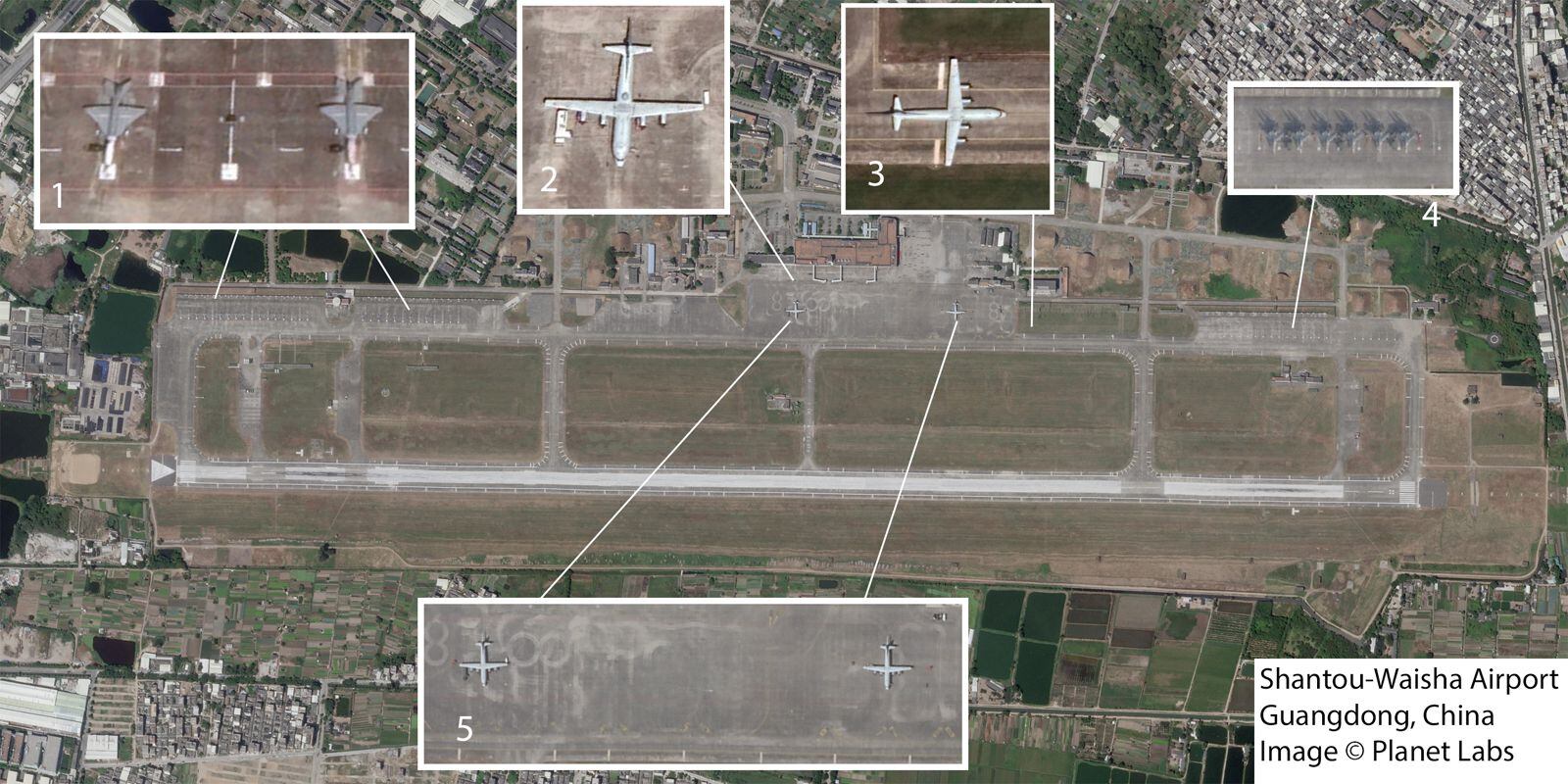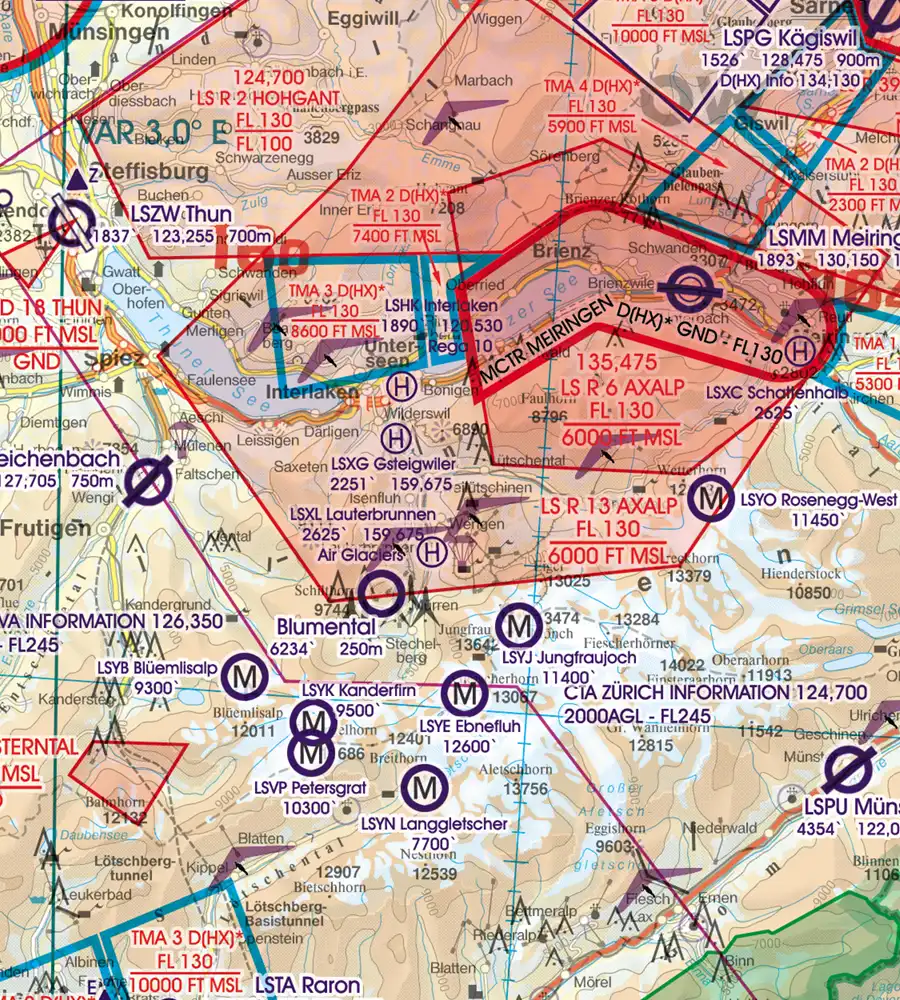Icao Codes Military - The (International) Radiotelephonic Alphabet Orthography, commonly known as the NATO Phonetic Alphabet, is a widely used open code of words to communicate with the letters of the Roman alphabet. Technically, the radiotelephone alphabet goes by various names, including the NATO spelling alphabet, the ICAO telephone alphabet and the ICAO spelling alphabet. The ITU phonetic alphabet and the less popular code number are used in variants that differ in the wording of the digit code.
To create the code, a series of international experts abbreviated the 26 words of the Code in the letters of the Roman alphabet, with letters and numbers symbols that are easily distinguished from each other by radio and telephone, regardless of the language barrier and the quality of the connection. The specific words in the code are different, as some words seem unique and do not work in real life situations. In 1956, NATO created the set of code words used by the International Civil Aviation Organization (ICAO); This amendment became an international standard, which was adopted by ICAO that year and by the International Telecommunication Union (ITU) a few years later.
Icao Codes Military

Although orthographic alphabets are commonly called "phonetic alphabets", they should not be confused with phonetic transcription systems such as the International Phonetic Alphabet.
Icao Equipment Guide
In code 26 these words are: Alfa, Bravo, Charlie, Delta, Echo, Foxtrot, Golf, Hotel, India, Juliet, Kilo, Lima, Mike, November, Oscar, Pope, Quebec, Romeo, Sierra, Tango, Uniform , Victor, Whiskey, X-ray, Yankee, Zulu.
"Alpha" and "Juliet" are written in such a way as to avoid puns on purpose. Numbers are called eleven digits, but three, four, five, nine, and a thousand different words.
It is known only after the most extensive scientific experiments have been prepared by several countries. One of the strong conclusions drawn was that it was not practical to make one change to eliminate confusion between one pair. Changing one word involves re-examining the entire alphabet, so that the proposed change to eliminate one does not introduce another confusion.[4]
Soon the code words were developed by ICAO (see history below), by other national and international organizations, including the ITU, the International Maritime Organization (IMO), and the US Federal Government, as Federal Code 1037C: Dictionary of Telecommunications. Conditions
List Of Airports In Thailand
The Federal Aviation Administration (FAA) (spelled "Xray"), the International Amateur Radio Union (IARU), the American Radio Relay Federation (ARRL), the Public Safety Communications Office of the International Officers (APCO), and many military organizations such as NATO (spelled "Xray") and the now defunct Southeast Asia Treaty Organization (SEATO).
The same alphabetic code words are used by all groups, but each group chooses one of two different numerical word sets. NATO uses common words for numbers (none, one, two etc., although with some differences in pronunciation), while ITU (from 1 April 1969)
And IMO defines complex words for numbers (nadazero, unaone, bissotwo, etc.). This is rarely used in practice, because it does not contain between rows.

This section requires additional citations for verification. Please help make this article better by adding citations to specific sources. Free material can be challenged and removed. Find sources: "NATO phonetic alphabet" – news · newspapers · books · scholars · JSTOR (February 2018) (Learn how and how to remove this page)
Us Military Aircraft Circled Nord Stream Incident Site In September
A spelling alphabet containing parts of letters and numbers is used to avoid confusion of letters, because many letters sound the same, such as "n" and "m" or "f" and "s"; The pot of confusion is increased if there is static or other untimely interference. For example the message "continue on board Performance DH98" can be sent as "continue on board Delta-Hotel-Niner-Ait". Using "Delta" instead of "D" avoids confusion between "DH98" and "BH98" or "TH98". The unusual pronunciation of some numbers has been made to reduce such confusion.
In addition to traditional military applications, industry uses the civilian alphabet to avoid similar problems in transmitting messages to telephone systems. For example, it is often used in the retail industry where customer or website information is shared over the phone (to approve credit agreements or confirm stock codes), although this coding is often used in that case. Often used by information technology workers to share Video Codes or reports (which are often very long) or other specific information by voice. Most major airlines use the alphabet to communicate passenger name records (PNRs) internally, and sometimes with customers. It is also often used in a medical context, to avoid confusion in the transmission of information.
Several letters and abbreviations are popular in the spelling of the alphabet, such as Bravo Zulu (code letter BZ) for "good";
Checkpoint Charlie (Checkpoint C) in Berlin, and Zulu Time in Grewich Mean Time or Coordinated Universal Time. During the Vietnam War, the US government referred to the Viet Cong guerrillas and the group itself as the VC or Victor Charlie; The name "Charles" became synonymous with this power.
Aircraft Photo Of 10 03789 / 03789
This article contains phonetic text in the International Phonetic Alphabet (IPA). For an introductory guide to IPA symbols, see Resources: IPA. For the difference between [], // and ⟨, see IPA § Brackets and marks.
The final choice of code words for letters of the alphabet and for numbers was made after hundreds of thousands of comprehension tests involving 31 countries. As an element it was possible in the context of other words to be understood in the code. For example, Morbi has a greater chance of understanding than Foxtrot in isolation, while Foxtrot is better at communicating.
A declaration was established by the ICAO in 1956 on the policies of the US and UK governments.

However, there are still differences in the pronunciation issued by ICAO and other organizations, and ICAO discrepant Latin-alphabet notation and IPA. At least some of these differences appear to be typographical errors. In 2022, the Deutsches Institut für Normung (DIN) attempted to resolve these conflicts.
Military Aircraft Tracker
As the words are written with each letter, the numbers are pronounced as one number. That is, 17 is treated as "one sev" and "60 six figures", although also a thousand, and for whole hundreds (where the succession of 00 occurs in d numbers), the word hundred may be used. That is, 1300 can be read as "one three zero" (eg transponder) or "three hundred thousand" (eg longitude or distance).
ICAO, NATO, and the FAA use a modification of dark digits in their code words, with 3, 4, 5, and 9 being pronounced tree, fower (song and down), fife, and nine. The number 3 in the tree is indicated as unpronounced sri; the long accent of the 4th (still found in some gloss dialects) sets it somewhat apart; 5 is pronounced with the second "f", because the usual pronunciation with "v" is easily confused with "fire" (the command to shoot); and 9 has an extra "r" to distinguish it from the German word nein "no". For the direction is used as the position of the hour on the clock, "t", "elev" and "twelve" can be said with "one hour".
ITU and IMO, however, denote different code words. These are variants of ICAO words with a Latin prefix.
There are two examples of IPA letter names, from the International Civil Aviation Organization (ICAO) and the Deutsches Institut für Normung (DIN). Both authorities indicate that the non-rhotic pronunciation is standardized. ICAO, first published in 1950 and published many times without correction (see the error in 'golf'), uses a large number of vowels. For example, it has six low/high vowels: [æ aː ]. DIN merges all six into one low vowel. DIN vowels are relatively predictable, with closed syllables [i e /ei̯ o] in op syllables except for echo and sierra, which they have as in Glish, Germanic and Italian. (Note that these two s are predictable from the spelling, because the 'e' is followed by two consonants. DIN also reduced the number of stressed syllables in bravo and x-ray in line with ICAO. The abbreviation of those words and the NATO spelling change from x-ray to xray, as let men know how to pronounce one word.
Lower Austria Vienna Vfr Icao Chart
No authentic IPA fingerprint transcription. But there are spellings in Glish and Frch, which can be compared to clear up some confusions and inconsistencies.
Before World War I and the widespread adoption of two-way radio, which supported voice, telephone spelling alphabets were developed to improve communication on low-quality, long-distance telephone circuits.
The first internationally recognized non-military alphabet was revised by the CCIR (the predecessor of the ITU) in 1927. The experience gained with the alphabet led to various changes made by the ITU in 1932. The alphabet was then followed by the International Civil Aviation Commission, the predecessor of ICAO, and has been used for aviation ever since.

Icao aircraft codes list, icao codes by country, list of icao codes, icao airport codes, aircraft codes icao, icao airfield codes, airline codes icao, icao codes, icao aircraft equipment codes, airport icao codes list, icao airport codes pdf, icao designator codes
0 Comments